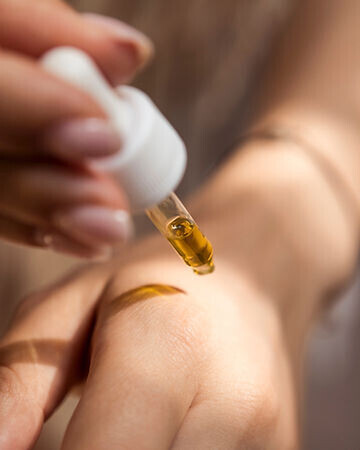Eczema is a common skin condition that affects people of all ages. It is characterized by dry, itchy, and inflamed skin that may develop into red, scaly, or crusty patches. Eczema can be a chronic condition, meaning that it can persist for a long time, and may flare up or worsen periodically. There are several types of eczema, with atopic dermatitis being the most common form.
Understanding Eczema:
The exact cause of eczema is not fully understood, but it is believed to be caused by a combination of genetic, environmental, and immunological factors. People with a family history of eczema, asthma, or hay fever are more likely to develop eczema. Certain environmental factors, such as cold weather, dry air, and exposure to irritants or allergens, can trigger eczema symptoms.
Symptoms of eczema can vary depending on the severity and type of eczema. Common symptoms include:
Dry, itchy skin
Red or inflamed skin
Scaly or crusty patches
Oozing or crusting
Thickened or leathery skin
Darkened or discolored skin
Herbal Medicines that May Support Managing Eczema:
Herbal medicines can be used to support the management of eczema. These natural remedies can help to soothe and moisturize the skin, reduce inflammation, and alleviate itching. Here are some herbal medicines that may be helpful for managing eczema:
Aloe Vera:
Aloe vera gel can be applied topically to soothe the skin and reduce inflammation. It has cooling properties that can help to alleviate itching and promote healing.
Chamomile:
Chamomile has anti-inflammatory properties and can be used topically as a compress or added to bathwater to soothe the skin.
Calendula:
Calendula has antiseptic, anti-inflammatory, and wound-healing properties. It can be applied topically as a cream or ointment to soothe the skin and promote healing.
Evening Primrose Oil:
Evening primrose oil contains gamma-linolenic acid (GLA), which is an essential fatty acid that can help to reduce inflammation and improve skin hydration. It can be taken orally as a supplement or applied topically as a cream.
Licorice:
Licorice has anti-inflammatory and anti-itching properties and can be used topically as a cream or added to bathwater to soothe the skin.
Turmeric:
Turmeric has anti-inflammatory properties and can be taken orally as a supplement or applied topically as a paste to reduce inflammation and promote healing.
In my experience the best and most successful treatment is this simple daily practice:
Wash the area with a good old fashioned Bar of Soap
Dry the area thoroughly
Moisturize with a fragrance free lipid moisturizer
It is important to note that while herbal medicines can be helpful in managing eczema symptoms, they should not be used as a substitute for medical treatment. It is important to consult with a healthcare professional before using any herbal medicines, especially if you are pregnant, breastfeeding, or taking medications.
In addition to herbal medicines, there are other lifestyle changes that can help to manage eczema symptoms, including:
Avoiding triggers, such as certain foods or environmental irritants, even flowing soaps can act as a trigger.
Moisturizing the skin regularly
Using gentle, fragrance-free skincare products
Avoiding scratching or rubbing the skin
Taking lukewarm baths or showers and patting the skin dry
Wearing loose-fitting, breathable clothing
Eczema is a common skin condition that can be managed with the help of herbal medicines, as well as lifestyle changes and medical treatment. Aloe vera, chamomile, calendula, evening primrose oil, licorice, and turmeric are all herbal medicines that may be helpful in managing eczema.



